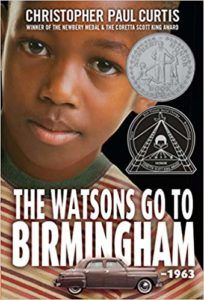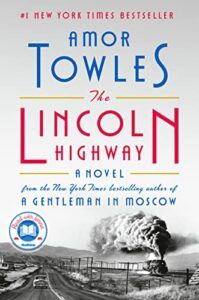It’s About the Journey: What Road Trips Represent in American Literature - Book Riot
There are few things as classically American as a good-old fashioned road trip. But that's what happens when your country doesn't have a robust rail system: come vacation time, your family hits the open road. It was, after all, John Steinbeck in Travels With Charley who noted that "Every American hungers to move." There is something romantic about hitting the open road, a journey that is both physical and emotional. The great thing about a roadtrip compared to any other type of travel is that we don't always know what's going to happen on the way. Sort of like the journey of life, no?
So it comes to no surprise that road trips play an important role in American literature. An open road is a ridiculously obvious metaphor for a hero on a journey of self-discovery. They take various stops along the way, where their views of the world are challenged, and they grow more confident to reach their end point. Of course, the road isn't always clear and is filled with reroutes and stops.
The benefit of living in such a big country is that Americans can do just about anything without flashing their passports. Skiing? You got the likes of Vail and Salt Lake City. Camping? Take your pick of the National Parks. (I'm partial to Yosemite and Sequoia.) Mountains? Pick a range. (I love the Rockies.) There are even towns that'll trick you into thinking you're in other parts of the world, like Solvang in California. Such a country makes for some rich source material for writers.

One of the first road trip books I read was for my 7th grade English class: The Watsons Go to Birmingham by Christopher Paul Curtis. In the story, Kenneth and his family are traveling from Flint, Michigan to (you guessed it) Birmingham, Alabama. Even after all these years, I still remember reading a passage about how Kenneth's mother had meticulously planned out the trip, noting safe places her family could stop and rest. America in the 1960s was dangerous for a Black family, so the prospect of a road trip was not very romantic or even adventurous — there wasn't much room for spontaneity. As a reader, I could track how the road trip from the North to the South represented Kenneth maturing and understanding more about the unjust world around him. Going from his hometown where he felt safe in his community to the Jim Crow South was a cruel reality check. That said, The Watsons Go to Birmingham was also a beautiful story about family, and how you sometimes have to travel far from home to appreciate them.
Around this same time, I read a very different children's book with a road trip: The Lightning Thief by Rick Riordan. The story is a satire of how the children of Greek gods functioned as modern-day heroes. Riordan took the classic epics, in which heroes venture into the unknown and fight monsters, and turned it into an American road trip. As a kid, it was fascinating to see ancient Greek monsters interacting with classic American settings, such as The Gateway Arch and Las Vegas Strip. The journeys, or road trips, in Ancient Greek epics were marked with trials that proved the hero's capabilities to the gods and extolled their virtues to the masses. In The Lightning Thief, it felt like the monsters represented the hurdles that every young teenager needed to get through, whether it was an adult who refuses to believe you or one that pretends to be your friend. As a kid, it was pretty impossible to relate to The Odyssey, but The Lightning Thief was one of the first times I saw kids my age (at least when I was reading the book) go on adventure to places I could also physically visit…sans The Furies, of course.

And who doesn't want to go on an epic quest? While the world of Homer isn't a reality for readers, our current world, with all its paved roads and roadside curiosities, is. Some road trips are epic in their lack of a final destination. And then there are road trips that go astray, forcing you to go somewhere you didn't want to. I recently finished The Lincoln Highway by Amor Towles, a story about two brothers who want to find their mother who is living on the West Coast. But thanks to two interfering friends, they end up in New York City. Like any good road trip book, they stumble upon a cast of characters reminiscent of Greek heroes. In fact, one such character, literally named Ulysses, saves one of the main characters from a thieving pastor. Emotionally, I could see how this journey is a metaphor for how even the most meticulous planning will just lead you in the opposite direction. Sometimes, the universe and its open road don't really care about your plans or goals.
Readers always love being taken on journeys. And while road trips are literal, there's a reason they're so prevalent in literature. What better way to show an adventure while indicating its implications?
Comments
Post a Comment